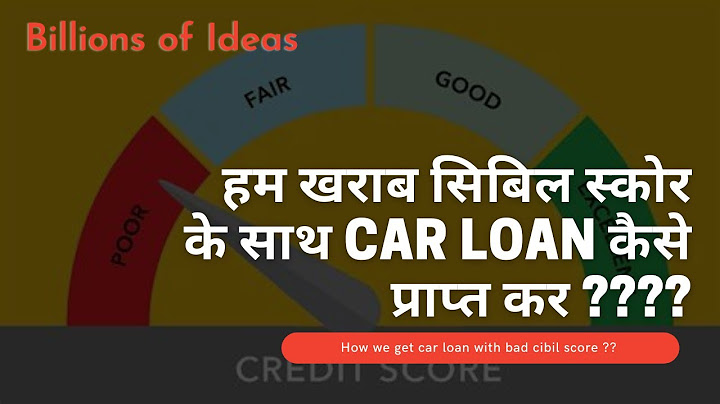This question is about Credit Cards @PaddySully • 03/04/22 This answer was first published on 01/22/18 and it was last updated on 03/04/22.For the most current information about a financial product, you should always check and confirm accuracy with the offering financial
institution. Editorial and user-generated content is not provided, reviewed or endorsed by any company. You should use your credit card at least once every three months to keep it active (but more often than that if you want your credit score to improve at a faster rate). Not all issuers are the same when it comes to credit card inactivity. Some might never close an inactive card, while others might do it after only a few months. But there aren’t any major
credit card companies that state they’ll close your account before it’s been inactive for three months. Keep in mind that “activity” could be as little as making a $1 purchase. Making a payment or a balance transfer usually counts too, depending on the issuer. And issuers will often contact you if they’re planning to close your account based on inactivity, in order to give you a chance to keep your card by using it. Just make a small charge and you should be all set. As long as you can afford to, though, you really should use your
credit card every month. It’s not a bad thing to have zero balance, but your credit score won’t improve as quickly as it would if you make charges and pay them off. Don’t feel forced to spend, but consider charging at least one small thing. Jimmy Mill, Member@jmiller87 • 02/26/22 This answer was first published on 02/26/22. For the most current information about a financial product, you should always check and confirm accuracy with the offering financial institution. Editorial and user-generated content is not provided, reviewed or endorsed by any company. Every institution is different, i have had 2 cards closed because if forgot about them and it ended up hurting my credit. I started using CardSaver though which lets me charge $1 to my idle cards to keep them open (https://cardsaver.app). They don't charge anything other than the $1 to keep your card active. Answer Question People also askWhat happens if you don't use your credit card?The short answer is that nothing is likely to happen if you don’t use your credit card for a few months. Not using your card could actually help your credit score if you have a $0 balance when you stop (contrary to some common myths about keeping a small credit card balance being beneficial).… read full answer The longer answer is that exactly what happens if you don’t use your credit card depends on which card you have. Some rewards cards will revoke any unredeemed points, miles or cash back you have saved up if you don’t use your credit card at all for a certain period of time – usually around 12 months. And if you don’t use your credit card for 6 months or more, the issuer could close your account. But there’s no standard timeframe for when a credit card issuer will decide to close an account due to inactivity. Having your account closed due to inactivity could hurt your credit standing and possibly make it seem like your credit history is shorter than it really is. However, you will not be charged any sort of inactivity fee by your credit card company if you don’t use your card to make purchases or other types of transactions for a prolonged period of time. Credit card inactivity fees are banned by law. As a result, not using your credit card (at least not regularly) can be a great strategy if you want to build credit but are worried about overspending. You just have to make sure your balance is $0 when you stop using your card. A credit card with no balance will get reported to the credit bureaus as being in good standing each month, with an on-time payment and 0% credit utilization. That in turn will lead to credit score improvement if you manage the rest of your finances responsibly. For your convenience, we’ll summarize the key points to remember below. Here’s what happens if you don’t use your credit card:
The bottom line is that not using your card can still be good for your credit. And it’s far better than using your card irresponsibly. So if you don’t trust yourself to limit your spending, it may be wise to set your card aside until you have a necessary expense. show less Is it better to pay off your credit card or keep a balance?It’s better to pay off your credit card than to keep a balance. It's best to pay a credit card balance in full because credit card companies charge interest when you don’t pay your bill in full every month. Depending on your credit score, which dictates your credit card options, you can expect to pay an extra … read full answer9% to 25%+ on a balance that you keep for a year. For example, if you spent $100 on a card with a 15% purchase APR, you would owe $115 at the end of a year. A good APR is anything below 18%, as that’s roughly the average for new card offers. And even that’s not very low. Plus, most credit cards have a grace period, which means if you pay off your full balance every month before the due date, you won’t have to pay interest. But you lose the grace period if you don’t pay in full one month, and you’ll have to pay your entire balance for two consecutive billing cycles to get it back. Some people think you need to carry a balance in order to see positive information on your credit report, but that’s simply not true. You don’t even need to use your credit card to build credit. Simply keeping an account open and in good standing is enough to affect your score for the better. Using your card regularly helps because having a credit utilization ratio between 1% and 10% is slightly better for your credit score than 0%. But credit utilization is based on your statement balance, and your monthly statement comes before the due date. So you can still pay your bill in full every month while doing right by your credit score. In fact, you should pay in full whenever possible. Of course, it’s a different story if you’re using a 0% credit card. During the 0% APR introductory period, your balance – whether from a purchase or balance transfer – won’t accrue interest as long as you pay the minimum amount required by the due date each month. But if you don’t pay in full by the end of the 0% period, interest will come into play. Here’s why it’s better to pay off your card than to carry a balance:
So, to recap, it’s better to pay off your credit card than to carry a balance because it builds your credit history just as well without subjecting you to interest charges. And remember, not carrying a balance does not mean you have to stop using your credit card. There is a middle ground. A balance will be listed on your credit card statement whenever you make purchases, but if you pay that amount by the due date, you won’t really be carrying a balance. If you’ve got some credit card debt you’d like to get rid of, a 0% balance transfer credit card could help you save a lot of time and money. And if you’re trying to improve your credit, WalletHub’s free daily credit scores and credit analysis can will get you on track. show less What happens if I don't use my credit card for a month?Nothing much happens if you don’t use your credit card for a month. You’ll just need to keep up to date with your monthly payment if you have an existing balance. But your credit card issuer isn’t going to close your account for less than three months of inactivity. And on top of that, you’ll still receive a monthly statement if you don’t make any purchases, but there won’t be anything new to pay off.… read full answer Interest will still accrue on any balance you had from past months, and you’ll still need to make a monthly payment on that balance. So don’t forget to send that in, if applicable. But if you always pay in full, you don’t need to do anything. Here’s why you should use your card frequently The only other thing to consider is that if your card offers rewards, you’ll miss out on a month’s worth if you don’t use it. You’re going to spend some money on necessities anyway, so it’s probably worth it to put your groceries or gas on your card. And it’s good for your credit score to use your card every month, too. show less WalletHub Answers is a free service that helps consumers access financial information. Information on WalletHub Answers is provided “as is” and should not be considered financial, legal or investment advice. WalletHub is not a financial advisor, law firm, “lawyer referral service,” or a substitute for a financial advisor, attorney, or law firm. You may want to hire a professional before making any decision. WalletHub does not endorse any particular contributors and cannot guarantee the quality or reliability of any information posted. The helpfulness of a financial advisor's answer is not indicative of future advisor performance. WalletHub members have a wealth of knowledge to share, and we encourage everyone to do so while respecting our content guidelines. This question was posted by WalletHub. Please keep in mind that editorial and user-generated content on this page is not reviewed or otherwise endorsed by any financial institution. In addition, it is not a financial institution’s responsibility to ensure all posts and questions are answered. Ad Disclosure: Certain offers that appear on this site originate from paying advertisers, and this will be noted on an offer’s details page using the designation "Sponsored", where applicable. Advertising may impact how and where products appear on this site (including, for example, the order in which they appear). At WalletHub we try to present a wide array of offers, but our offers do not represent all financial services companies or products. Did we answer your question? Sorry! How can we improve this answer? What happens when a credit card company closes your account?Even though the credit card account is closed, it will remain on your credit report at least for the duration of the credit reporting time limit. If you're still making payments on the balance, the payment history and timeliness of your payments will also be reported.
Is it better to close a credit card or let it go inactive?In general, it's best to keep unused credit cards open so that you benefit from a longer average credit history and a larger amount of available credit. Credit scoring models reward you for having long-standing credit accounts, and for using only a small portion of your credit limit.
|

Related Posts
Advertising
LATEST NEWS
Advertising
Populer
Advertising
About

Copyright © 2024 nguoilontuoi Inc.



















